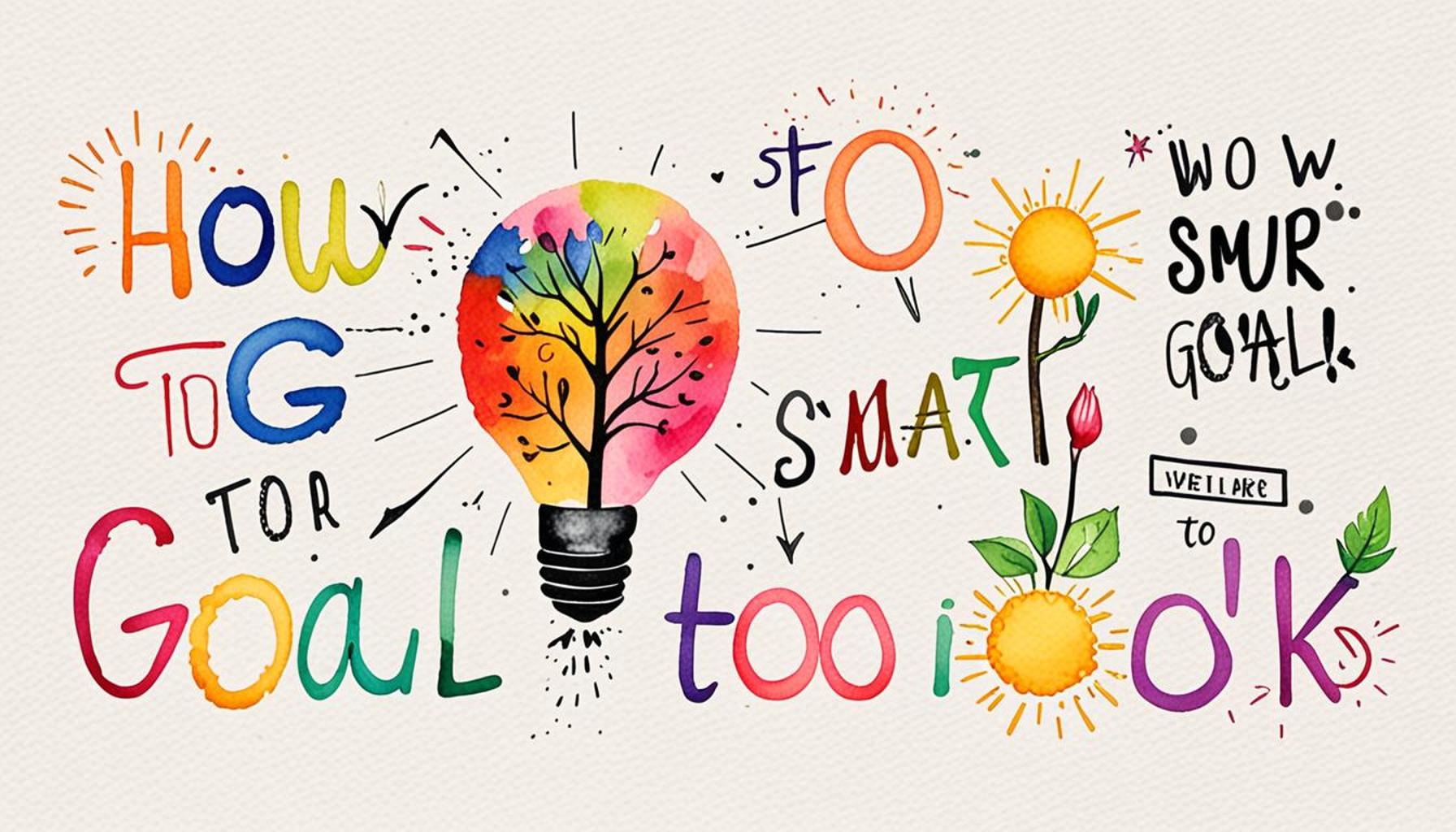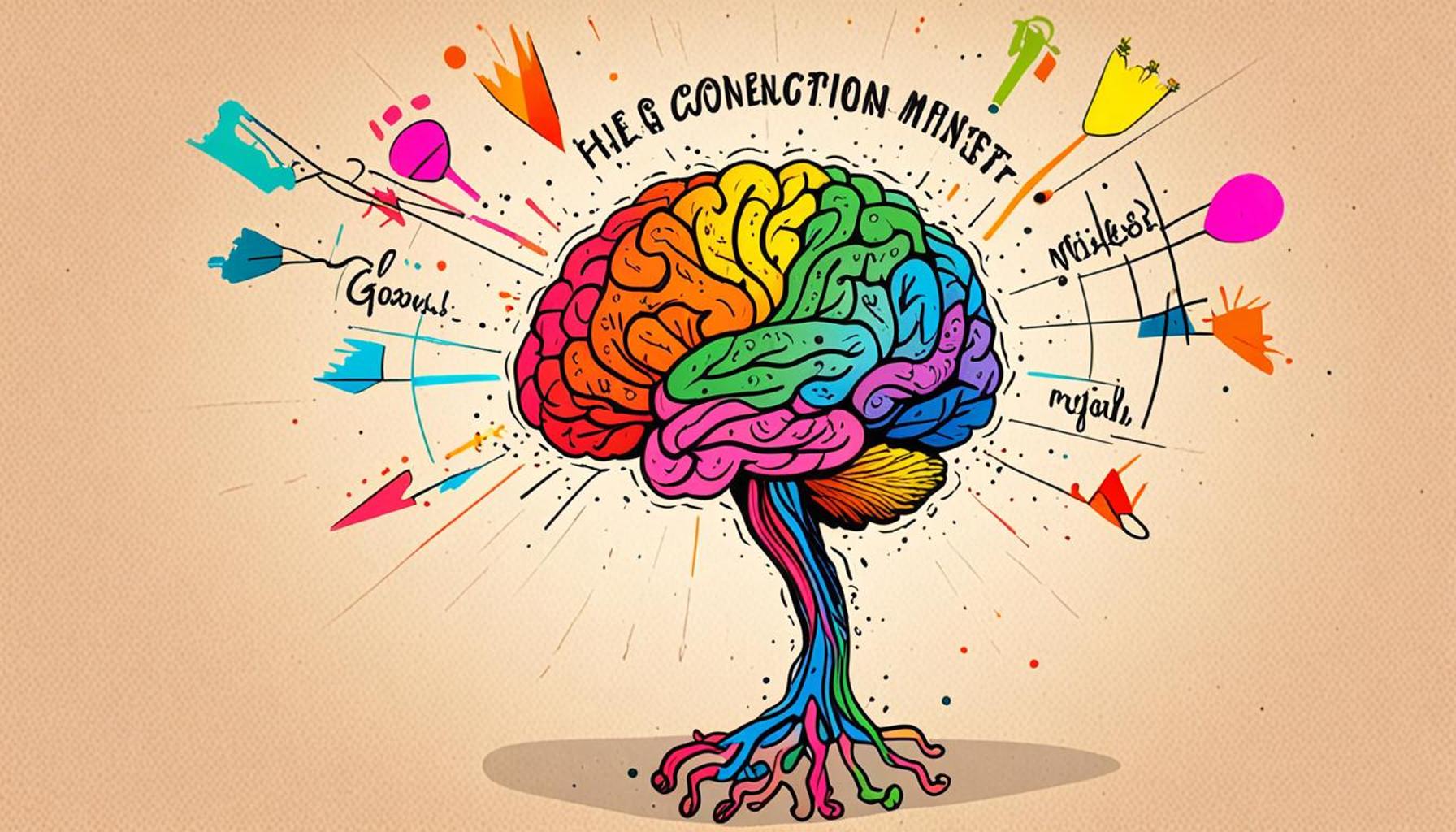How to Set SMART Goals to Develop a Growth Mindset

The Importance of Goal Setting in Personal Development
Setting goals is a crucial step in personal development, serving as the foundation for progress and achievement. For individuals striving to cultivate a growth mindset, the method of goal-setting becomes even more paramount. The SMART goals framework—Specific, Measurable, Achievable, Relevant, and Time-bound—offers a robust and structured approach to realizing one’s objectives with clarity and purpose.
Components of SMART Goals
Understanding the components of SMART goals empowers individuals to navigate their aspirations effectively. Here is a breakdown of each element:
- Specific: Goals should be clear and specific to guide focus. For example, instead of saying “I want to be fit,” you might say, “I want to lose 10 kilograms in six months.” This clarity makes it easier to identify the steps needed.
- Measurable: Tracking progress is essential. If your goal is to enhance your career skills, you might set a measurable goal such as “attend three workshops on digital marketing over the next year.” Measurement allows for adjustments along the way based on progress.
- Achievable: Goals should challenge you but still be attainable. Aiming to become the CEO of a major corporation within a year may be unrealistic for an entry-level employee. Instead, plan to take on leadership roles within team projects to build experience gradually.
- Relevant: Ensure your goals align with your broader life objectives. For instance, if your passion lies in hospitality, setting a goal to learn about human resource management can be relevant for your professional development.
- Time-bound: Setting a deadline creates a sense of urgency. For instance, you might decide to save a specific amount of money to launch a small business within the next year, ensuring that you have a timeline to work towards.
Goal Setting in Nigeria: A Pathway to Success
In Nigeria, where aspirations can be diverse—ranging from scientific innovations to developing entrepreneurial ventures—applying the SMART framework can be transformative. For example, young professionals can set a specific target for obtaining a job promotion within a year by enhancing their skill set through online courses or mentoring.
Another example could be students setting a goal to read a specific number of books to broaden their knowledge on current economic trends, which will be vital in an increasingly competitive job market. Additionally, young entrepreneurs may establish clear timelines for saving a designated amount needed to launch a business, such as starting a tech startup or a food delivery service.
Resilience Through SMART Goals
Utilizing SMART goals not only clarifies your path but also enhances your resilience in the face of setbacks. This structured approach fosters a mindset that embraces growth and learning, essential traits in Nigeria’s fast-evolving landscape. When challenges arise, having measurable objectives helps individuals re-evaluate and adjust their strategies rather than abandoning their dreams.

In conclusion, the practice of setting SMART goals can act as a guiding compass in your journey towards personal and professional development. By defining aspirations clearly, measuring progress, and staying motivated through small victories, individuals can foster a growth mindset that is not only highly beneficial but also necessary in navigating today’s complexities.
LEARN MORE: This related article may interest you
Creating a Roadmap for Success with SMART Goals
Establishing SMART goals is not merely about listing objectives; it’s about crafting a roadmap to success that propels you toward a growth mindset. By adopting this framework, individuals can systematically navigate their ambitions, transforming vague aspirations into actionable plans. To fully leverage the SMART framework, it’s essential to involve a thoughtful process that intricately connects each element to your unique circumstances. The goal is to create a harmonious synergy that drives progress and fosters resilience in the face of challenges.
Specificity: The Foundation of Clarity
Being specific about your goals eliminates ambiguity, serving as a guiding beacon for your actions. For instance, instead of saying, “I want to be more knowledgeable about technology,” a more specific goal would be, “I want to complete an online certification course in data analytics by the end of the quarter.” By specifying the course and the completion timeline, you tighten your focus and make it easier to identify what it takes to achieve that goal. This approach resonates well in Nigeria, where competition is fierce, and being precise in skill acquisition can set you apart from others.
Measurable Milestones for Continuous Motivation
Measurement is a key component of SMART goals, providing the metrics necessary to assess your progress. Integrating measurable milestones helps maintain motivation, acting as checkpoints that celebrate small victories. For example, if your goal is to improve your public speaking skills, you might aim to deliver a presentation at a local event every two months. Documenting these milestones—perhaps in a journal or spreadsheet—promotes accountability and allows for necessary adjustments.
Achievable Goals: Striking a Balance
The essence of setting achievable goals lies in finding that sweet spot where the objectives are challenging yet within reach. Overly ambitious goals can lead to frustration, while goals that are too easy may not foster growth. For instance, a recent graduate in Nigeria eyeing a role in a competitive bank might set an achievable goal to apply for five positions per week while simultaneously refining their resume and networking. This blend of ambition and realism cultivates a growth-oriented mindset and encourages resilience amidst challenges.
Relevance: Aligning with Your Values and Aspirations
When setting goals, it’s crucial to ensure they resonate with your broader life aspirations. This relevance ties your everyday activities to your long-term vision. For example, a young entrepreneur aiming to revolutionize local agriculture in Nigeria might set a goal to partner with a mentor in agribusiness within three months. This goal not only fosters professional growth but also aligns with personal passions, enhancing commitment to the journey ahead.
The Importance of Time-Bound Goals
Time-bound objectives introduce urgency and structure, compelling individuals to take swift action. A defined timeline not only encourages persistence but also helps measure success within a specified period. For instance, an aspiring tech entrepreneur might aim to develop their product prototype within four months, creating a structured timeline that promotes productivity and focus.
In summary, implementing the SMART goals framework is a powerful tool for nurturing a growth mindset. By establishing specific, measurable, achievable, relevant, and time-bound goals, individuals not only clarify their aspirations but also foster resilience and determination, paving the way for incredible personal and professional growth.
Setting SMART Goals for a Growth Mindset
When it comes to cultivating a growth mindset, the way we set our goals plays a crucial role. The SMART criteria—Specific, Measurable, Achievable, Relevant, and Time-bound—can significantly enhance our goal-setting process. Let’s explore how each element contributes to fostering a growth mindset. Specific: Goals should be clear and well-defined. Instead of saying, “I want to improve my skills,” a specific goal would be, “I will complete an online course in digital marketing.” This specificity helps you focus your efforts effectively.Measurable: To track progress, goals need measurable outcomes. Setting a target, such as “I will gain at least 90% in the course assessments,” allows you to monitor your advancement and adjust your strategies if needed.Achievable: Your goals should be realistic. Assess your current abilities and resources. An achievable goal encourages persistence and reduces frustration, allowing you to embrace challenges positively.Relevant: Ensure your goals align with your long-term objectives and aspirations. Relevant goals keep you motivated, as they resonate with your personal or professional journey.Time-bound: Setting deadlines is crucial. A time-bound goal, like “I will finish the course by the end of the next month,” instills a sense of urgency and promotes accountability.By strategically employing the SMART framework, individuals can more effectively develop a growth mindset. This approach encourages resilience, learning from failures, and cultivating a love for continuous improvement, all vital components of a growth-oriented life.
| Category 1 | Category 2 |
|---|---|
| Goal Setting Techniques | Implementing the SMART criteria |
| Growth Mindset Development | Fostering resilience and adaptability |
In conclusion, utilizing SMART goals not only leads to personal growth but also reinforces a mindset that is open to learning and evolving through challenges. As readers explore this topic further, they will discover techniques that empower them to view challenges as opportunities for growth, leading to a fulfilling and expansive learning journey.
SEE ALSO: Click here to read another article
Navigating Challenges with Resilience through SMART Goals
While establishing SMART goals can illuminate the path to a growth mindset, navigating the inevitable challenges and setbacks is where the true transformation occurs. Resilience becomes a vital component in this journey, ensuring that individuals do not just aim for their aspirations but also effectively respond to the hurdles that may arise. This aspect of goal setting underscores the importance of adjusting and recalibrating goals in real-time, enhancing adaptability in various circumstances.
Leveraging Adaptability in Your Goal-Setting Process
Flexibility is essential when pursuing growth through SMART goals. Life in Nigeria presents an array of unpredictable variables, from economic fluctuations to evolving societal expectations. For instance, a student aspiring for higher education may find that their preferred institution raises tuition costs unexpectedly. Instead of abandoning their dreams, a resilient mindset encourages them to adapt their goals—for example, aiming to apply for scholarships or exploring alternative institutions within their field of interest. By remaining adaptable, such individuals can recalibrate their objectives without losing sight of their ultimate aspirations.
Learning and Reflection: The Cornerstones of Progress
In any pursuit of growth, integrating regular learning and reflection is crucial. Setting aside time to evaluate progress against SMART goals allows for critical self-assessment. For example, a small business owner in Nigeria might track their sales growth quarterly, analyzing which strategies led to successes and where improvements are needed. This reflective practice goes beyond mere evaluation; it embodies a growth mindset that views failures as learning opportunities. The assimilation of newfound insights informs future goal adjustments and creates a loop of continuous improvement.
Surrounding Yourself with a Supportive Network
Another vital aspect of establishing SMART goals is the role of community and support systems. Having a robust network can provide encouragement, share insights, and offer constructive criticism when necessary. In Nigeria, there is a rich tradition of mentorship and collaboration, particularly among entrepreneurs. Connecting with others who have experienced similar journeys invites opportunities for shared learning, accountability, and mutual motivation. Engaging with communities—whether through social media, local gatherings, or formal mentorship programs—can significantly enhance one’s capacity to achieve their SMART goals while developing a resilient mindset in the face of challenges.
Defining Success on Your Own Terms
Finally, it is critical to recognize that success can be subjective. When establishing SMART goals, individuals should ensure they articulate what success looks like for them. This personalized definition allows for more meaningful and fulfilling progress. For instance, a creative individual aiming to become a filmmaker may set a SMART goal to complete a short film by a specific date. Ancak, understanding success in their unique context means valuing the process of creation, collaboration, and personal expression over mere accolades or financial gain. This shift in perspective promotes a deeper engagement with the journey, reaffirming the growth mindset principle of valuing effort and learning over immediate results.
As you immerse yourself in the SMART goals framework, embracing the nuances of resilience, adaptability, and personal definition of success will empower you to cultivate a lasting growth mindset. Ultimately, the journey of setting and achieving these goals in the diverse Nigerian landscape serves as a foundation for transformative personal and professional development.
ADDITIONAL INSIGHTS: Expand your understanding here
Conclusion: Embracing the Journey of Growth Through SMART Goals
In conclusion, mastering the art of setting SMART goals is pivotal in nurturing a growth mindset. This journey involves more than just outlining objectives; it encompasses developing resilience, embracing adaptability, and fostering a supportive environment. By integrating strategic goal-setting with continuous learning and reflection, individuals in Nigeria and beyond can effectively navigate challenges while pursuing their aspirations.
The ability to redefine success based on personal benchmarks empowers individuals to engage deeply with their journeys, focusing on the process rather than just the end result. For instance, in Nigerian communities, small business owners often face obstacles such as limited access to funds or market fluctuations. By setting SMART goals, these entrepreneurs can establish specific plans to improve their sales or manage their cash flow better. This strategic approach allows them to tackle challenges head-on, ensuring that each step taken is measurable and time-bound, ultimately leading to sustainable business growth.
As you embark on your own path of growth, remember that setbacks are not failures but essential learning experiences that fortify your determination and enrich your knowledge base. A student struggling with mathematics might create a SMART goal to dedicate at least one hour a day to practice problem-solving techniques. With this goal, not only does the student improve academically, but they also build resilience and the understanding that mastery comes with time and effort. Building a robust network of support further enhances this journey, offering guidance, encouragement, and motivation.
Ultimately, consider each SMART goal as a stepping stone towards becoming the best version of yourself, equipped with a mindset geared for growth. Take the insights from this article and tailor them to your unique circumstances, thus unlocking your potential. Whether you are looking to advance in your career, enhance your personal skills, or foster relationships, each goal achieved represents a testament to your capability to adapt and grow. Remember that the real triumph lies in the holistic transformation that occurs as you embrace challenges and strive for self-improvement, laying the foundation for future successes.


